Trusted By Industry Leaders


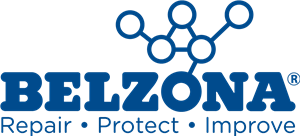
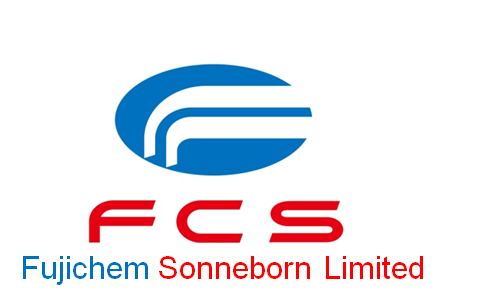
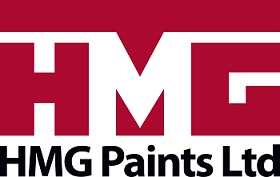


About Us
Why Choose Coatings Training Institute
The Coatings Training Institute is the ideal place for you to improve your technical knowledge or technical English and make a step change in your career. Hundreds of students from around the world have benefited from our training courses, which have been in place for over 30 years, which you can study at your own pace.
#1
Online Training Course Provider In The Industry
57
Modules Of Study Across 4 Levels
24/7
Support
Our Courses Teach
Paint & Ink Application
To achieve a Level 2 Certificate in Coatings Technology, candidates must choose: a minimum of 4 modules from the Compulsory Modules section and 2 modules from any other level.
Level 2 CoursesManufacture & Evaluation of Paints
To achieve a Level 3 Certificate in Coatings Technology, candidates must choose: a minimum of 4 modules from the Compulsory Modules section and 2 modules from any other level.
Level 3 CoursesInk Technology & Formulation
To achieve a Level 4 Certificate in Coatings Technology, candidates must choose: a minimum of 4 modules from the Compulsory Modules section and 2 modules from any other level.
Level 4 CoursesEpoxy, Acrylic & Water Reducible Resins
To achieve a Level 5 Certificate in Coatings Technology, candidates must choose: a minimum of 4 modules from the Compulsory Modules section and 2 modules from any other level.
Level 5 Courses10% OFF COURSES
More information on discount and what this applies here
Most popular courses
You can find some of our most popular courses below.
Module 201 - General Overview of Coatings
£415.00
Non BCF member
£305
BCF
member
Module 201 - General Overview of Coatings
This foundation level module provides a general overview of paints, lacquers, varnishes, inks, powder coatings and related products used for coating surfaces. It introduces the various divisions of surface coatings and explains the reasons for their use. It then describes the functions of different types of coating, details the components or raw materials used to make these coatings and the properties each contribute. The transformation from a liquid (or powder) state to an applied, dried/ stoved film is explained in some detail together with a general review of the main methods of application. Module 201 is one of a series of 9 modules at foundation level. Following a successful completion of this module, you may proceed to study further modules, selected on the basis of your needs.
£415.00
Non BCF member
£305
BCF
member
Module 203 - Pigments and their Properties
£415.00
Non BCF member
£305
BCF
member
Module 203 - Pigments and their Properties
This Foundation Level Module 203 describes and classifies various pigments used in the Coatings Industry, both by type and physical form. The main properties of pigments are then considered, in particular, particle size and particle size distribution, which are described in some detail, including the importance of oil absorption. The influence of particle size and size distribution on oil absorption are explained in some detail. A number of important aspects of pigment testing are also explained. These include pigment purity, tint strength and lightning power. This leads on to the optical properties of pigments. Colour principles, the nature of visible light and the optimum conditions needed for the assessment of colour are described along with the importance of colour standards. The problem of metamerism and how to minimise it are also described. Finally, the module tackles the important area of health and safety and the hazards associated with the handling of pigments. Four types of pigment hazards are explained and the section also covers the precautions, which must be taken to minimise any risk from these hazards.
£415.00
Non BCF member
£305
BCF
member
Module 202 - Media and Solvents
£415.00
Non BCF member
£305
BCF
member
Module 202 - Media and Solvents
In Foundation Level Module 201 media are classified on the basis of their physical properties and then the mechanisms of film formation are described. In this module, we look at examples of film formers on the basis of their physical form and outline some of the health hazards that can arise in their use. Some of their commonly determined properties are outlined. Under material properties and test methods, the importance of flow and viscosity measurements are stressed. The module then goes on to classify solvents on the basis of their chemical groups and behavior. In a practical exercise test methods are used to identify a given sample of hydrocarbon solvent. Attention is paid to the fire and health hazards of solvents. The film-forming processes of non-convertible resins are then outlined with particular emphasis on nitrocellulose. Finally, an introduction is given to some convertible resins. These are covered in detail in Intermediate Modules.
£415.00
Non BCF member
£305
BCF
member
Module 204 - Paint and Ink Manufacture - Rheology
£415.00
Non BCF member
£305
BCF
member
Module 204 - Paint and Ink Manufacture - Rheology
The manufacturing process for paints and inks is designed to produce a final product which has a uniform consistency and which conforms to appropriate test standards. These tests ensure that the product can be applied by the end user and that the coating will then dry to provide a film with acceptable properties. The process involves the intimate mixing of several raw materials - some solid and some liquid - so that they form a stable dispersion. The quality of the dispersion can have a profound effect on the storage properties, ease of application, appearance and performance of the coating. This module explains the purpose and methods of dispersion, some of the important properties, which govern the process, and the basic tests used to confirm that this has been achieved. It is expected that it will take approximately 10 hours to complete this module, including the practical work involved.
£415.00
Non BCF member
£305
BCF
member
Module 200 - Coatings for Life - An Introduction
£375.00
Non BCF member
£305
BCF
member
Module 200 - Coatings for Life - An Introduction
This module provides a good grounding of the basics of coatings chemistry and an introduction to the coatings industry. The module is perfect for industry newcomers, those employed at coatings companies in non-technical roles (i.e. marketing, customer service, sales) or anyone interested in learning the basics. The course is delivered online, via CTI's study portal. Upon completion of the module, you will receive your Foundation Certificate in Coatings Technology.
£375.00
Non BCF member
£305
BCF
member
Module 206 - Surface Preparation
£415.00
Non BCF member
£305
BCF
member
Module 206 - Surface Preparation
Module 206 deals with the first stages in preparing a surfaces prior to the actual application of a surface coating. What is the composition of the surface? What substances are naturally found on the surface and what do we have to do to remove them so that a subsequent coating applied to the surface will adhere? The module, first of all, examines the nature of the surface itself and the types of surfaces that are coated, ranging from metals to wood-based substances to plastics to masonry materials. The surfaces themselves differ with some being absorbent and others non-absorbent, while some are alkaline in nature. The principal contaminants, rust and mill-scale, and grease, which are found on substrates are considered and general methods of removing them are introduced. Section 3 deals in detail with the mechanical means of removing rust. The on-site and off-site techniques detailed range from wire-brushing to various methods of shot and grit blasting. The advantages and disadvantages of each are outlined. The final section introduces the various chemical methods of cleaning a surface including degreasing without going into detail of the plant used. (Chemical methods of cleaning and pretreatment are considered in detail in Intermediate module 329.)
£415.00
Non BCF member
£305
BCF
member
Our Students Stories

Melanie Brogden
Research and Development Assistant
"My experience studying [with CTI] was a positive one as I enjoyed researching information and writing my assignments. My studies have helped me in my career because I feel that what I have learnt links in to my career. I feel that I have a better understanding and increased knowledge since is studying."
Modules Undertaken
-
L2
201 General Overview of Coatings
-
L2
206 Surface Preparation
-
L3
319 Evaluation of Paints – Physical Properties
-
L3
320 Evaluation of Paints – Chemical and Environmental Properties
-
L3
324 Paint Application – Spraying
-
L3
329 Application – Metallic Substrates

Patrycja Zuchowska
Laboratory Technician
"This is a great place to gain or expand your knowledge about coatings. There is maximum support throughout all your studies."
Modules Undertaken
-
L2
201 General Overview of Coatings
-
L2
203 Pigments and their Properties
-
L2
205 Evaluation
-
L2
206 Surface Preparation
-
L3
314 Manufacture – Paint
-
L3
323 The Evaluation of Colour

Courtney Turner
Quality Control
"I have had a great experience with CTI. My main takeaways from my time on my course, and the further I go into my modules is that there are so many factors and interesting topics regarding paint and coatings in general."
Modules Undertaken
-
L2
201 General Overview of Coatings
-
L2
202 Media and Solvents
-
L2
203 Pigments and their Properties
-
L2
205 Evaluation
-
L2
206 Surface Preparation
-
L2
209 Paint and Ink Application
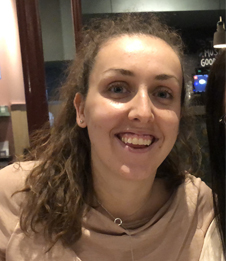
Rebecca Jones
Development Chemist
"I chose to study with the CTI to give myself a challenge and expand my knowledge in the hope that this would enhance my understanding of coatings and allow me to grow within my company and progress in my career."
Modules Undertaken
-
L4
403 Solvents and Additives
-
L4
407 Convertible Media - Alkyds and Polyesters*
-
L5
503 Formulation – Determining Factors
-
L5
510 Urethane and Amino Resins*
-
L5
511 Epoxy, Acrylic and Water Reducible Resins*
-
L5
599 Advanced Level Formulation Project
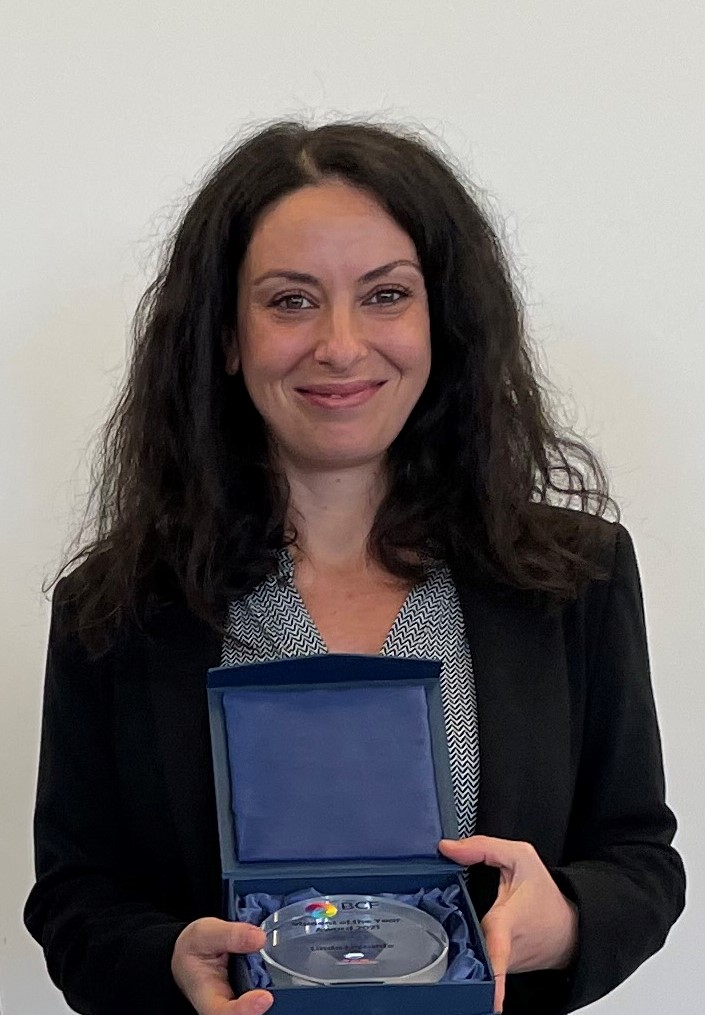
Linda Ferrante
Radiation Cure R&D Team Leader
"The CTI Modules have significantly helped me to improve my overall theoretical and practical understanding of Coatings Technology. I am successfully using what I have learned at work."
Modules Undertaken
-
L2
203 Pigments and their Properties
-
L2
204 Paint and Ink Manufacture - Rheology
-
L3
312 Testing – Solvents and Resins
-
L3
323 The Evaluation of Colour
-
L3
330 Application – Non-Metallic Substrates
-
L3
332 The Curing of Coatings
-
L4
403 Solvents and Additives
-
L4
408 Acrylics and Aminos *
-
L4
409 Epoxies and Urethane Resins *
-
L4
418 Manufacture – Flow

Sam Gumbley
R&D Technician, Belzona Polymerics
"The studies expanded my knowledge and awareness of what goes into creating a coating and what can affect the application or how the coating is applied."
Modules Undertaken
-
L2
201 General Overview of Coatings
-
L2
206 Surface Preparation
-
L3
319 Evaluation of Paints – Physical Properties
-
L3
320 Evaluation of Paints – Chemical and Environmental Properties
-
L3
324 Paint Application – Spraying
-
L3
329 Application – Metallic Substrates
-
L4
409 Epoxies and Urethane Resins *
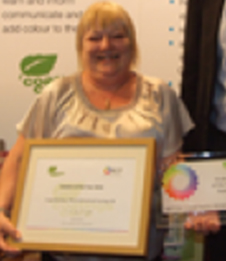
Susan MacDonald
Assistant Category Manager PPG Architectural Coatings
"I think I can easily say that all my chemical background and knowledge comes from The Coatings Training Institute."
Modules Undertaken
-
L2
201 General Overview of Coatings
-
L2
206 Surface Preparation
-
L2
209 Paint and Ink Application

Glenn Scott
Technical Assistant – R&D Dept AkzoNobel Marine and Protective Coatings
“The training gives you a belief and a confidence when you are explaining things to others"
Modules Undertaken
-
L2
202 Media and Solvents
-
L2
203 Pigments and their Properties
-
L2
204 Paint and Ink Manufacture - Rheology
-
L2
205 Evaluation
-
L2
206 Surface Preparation
-
L5
201 General Overview of Coatings

Philip Gerken
Quality Control Supervisor Teal & Mackrill
“Being able to fit the studying and the exams into my own schedule is perfect.”
Modules Undertaken
-
L2
201 General Overview of Coatings
-
L2
202 Media and Solvents
-
L2
203 Pigments and their Properties
-
L2
204 Paint and Ink Manufacture - Rheology
-
L2
205 Evaluation
-
L2
206 Surface Preparation
-
L3
301 Types and Manufacture of Pigments
-
L3
302 Properties of Pigments
-
L3
314 Manufacture – Paint
-
L3
315 Manufacture – Ink
-
L3
329 Application – Metallic Substrates
-
L3
330 Application – Non-Metallic Substrates
-
L3
333 Coatings – Safety, Health and Environmental Aspects

John Ilia
Chemist Daler-Rowney
“Being able to fit the studying and the exams into my own schedule is perfect.”
Modules Undertaken
-
L2
201 General Overview of Coatings
-
L2
203 Pigments and their Properties
-
L2
04 Paint and Ink Manufacture - Rheology
-
L2
205 Evaluation
-
L3
302 Properties of Pigments
-
L3
314 Manufacture – Paint
-
L3
333 Coatings – Safety, Health and Environmental Aspects
-
L3
313 The Testing of Pigments
-
L4
408 Acrylics and Aminos *
-
L4
421 Ink Technology and Formulation
-
L4
417 Manufacture – Dispersion
-
L4
403 Solvents and Additives
-
L5
501 Pigments Colour and Dispersion
-
L5
502 Evaluation and Specifications
-
L5
503 Formulation – Determining Factors

Kenneth Whitson
Analytical Chemist Akzo Nobel
“It’s always nice to have something a little extra on your CV.”
Modules Undertaken
-
L2
201 General Overview of Coatings

Paul Fisher
Development Chemist Spencer Coatings
“I can’t emphasize enough how much these courses have helped my career – and they can help anybody.”
Modules Undertaken
-
L2
202 Media and Solvents
-
L2
207 Powder Coatings - Overview
-
L2
208 Powder Coating Application and Cure
-
L3
301 Types and Manufacture of Pigments
-
L3
302 Properties of Pigments
-
L3
325 Paint Application – Non-Spraying
-
L3
329 Application – Metallic Substrates
-
L3
330 Application – Non-Metallic Substrates
-
L4
403 Solvents and Additives
-
L4
404 Media - Introduction and Manufacture of Medi
-
L4
407 Convertible Media - Alkyds and Polyesters *
-
L5
503 Formulation – Determining Factors



 Study Portal
Study Portal
